Please welcome my good friend and collaborator Ellie Markovitch! She is writing 40 days of sourdough recipes on her blog for Lent, and I encourage you to head over there and read. She’s followed her heart and instincts with bread and is sharing lovely, life-with-sourdough stuff & recipes. Even though I linked to the following on my last letter, I want to put these ideas right here in front of you, dear readers.
But first an announcement: we are teaching our Cook & Connect for Ukraine fundraising class again, this time with the Honest Weight Food Coop. People near me have the option to buy ingredients, but this is a remote class, and I’m so glad we’ll explore these recipes for vareniki & pampushky again.
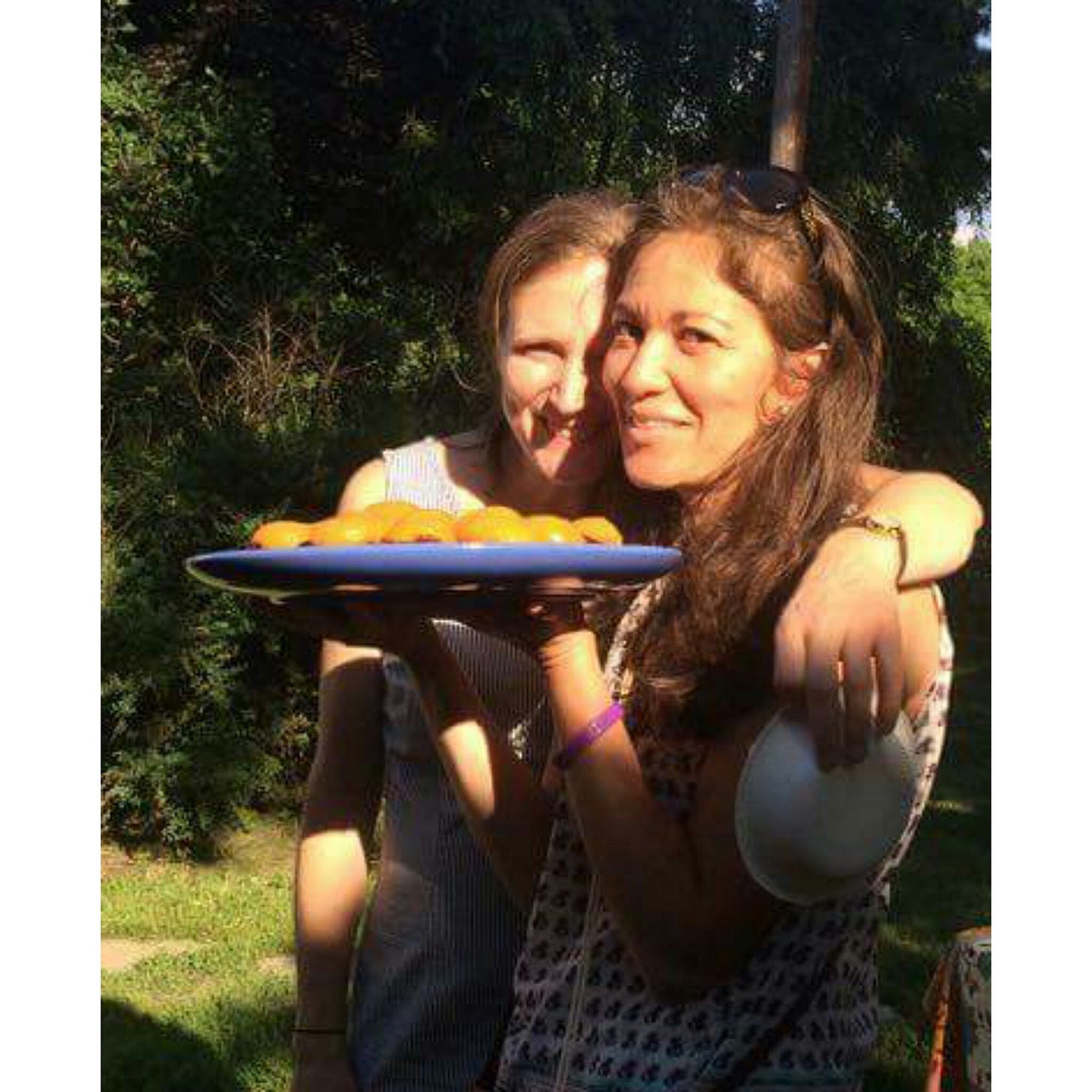
In the past 24 hours I got to connect with a total stranger. First through a recipe that arrived in my email box; then through a process, experimentation and bread making.
My friend Amy shared Mitch Stamm’s newsletter, calling us to “Bake for Bogdan : A Fundraiser for Ukrainian Bakers and their Communities.” Mitch shared the recipes of Bogdan Krasnoperov, who is baking for soldiers in Ukraine fighting the war right now. What a window! To see his formulas and dare to imagine him working as the invasion occurs. And what a gift, for him to share his recipes, to offer something grand & simple as he grows used to the sounds of sirens and bombs.
His “Honey loaf without sourdough and yeast” really appealed to me. We have made fermented cookies leavened only with honey before and this bread captured us. Amy and I got on Facetime and fiddled with his formula to fit our stone ground flours.
Watching our doughs take shape through texted pictures was really fun. Mine made beautiful bubbles and I thought, wow, if honey and flour can do this, why am I fussing with keeping a starter?
Later, I found out why: the flavor was not as complex. But the joy of “spontaneous fermentation,” as Bogdan named it in the webinar is truly wonderful.
This webinar was spontaneous fermentation, too, organized by bakers around the world who know and care for this man. Joining this live zoom was so nourishing. Bogdan spoke about his experience, and his friends gave quick bread demonstrations. The goodwill and fellowship was poignant.
Bread is a language. One that I am very thankful for. We speak bread and through bread I connected with this Ukrainian baker, and so many bakers who know him. Bogdan said his family was on the move, but is safe for now. He was looking forward to his first day off since the war began.
He said he first encountered this bread that ferments only with honey from a French baker, and that it took time to figure out how to handle this dough. My mind lit up! Wishing I could have been on his shoulder as he worked.
Bogdan closed by asking people to believe in a better future and to pray for Ukraine.
Later, he and I connected on Instagram and I shared a video of my bread with him. He took the time to help me understand his method. We messaged back and forth in a little flurry. I marvel that this language of bread has a way of transcending words and time. Through bread and baking, we are brought somehow to one place, even when we are physically apart, and facing very different circumstances. I am so glad that I can speak bread.
Amy and I have been baking for Ukraine making recipes from Olia Hercules book Summer Kitchens as well. She also talks about other ways of leavening bread. It is so easy to think there is one way to bread but bread has a million roads, if only we are ready to travel them.
Here some notes from Bogdan, shared with permission:
Honey loaf without sourdough and yeast
3000g wheat flour
300g whole wheat flour 45 g salt
150 honey (later he suggested using “farmer’s dark buckwheat”)
2040 water 40C (104F)
Mix 5 min all the ingredients.
1 hour fermentation then 1 S&F left for bulk fermentation for 16h.
Here is my bread:
600g sifted wheat + 60g whole wheat
469g at 80F (increased the water to 71% because we used stoned ground flours.)
30g honey
9g salt (I will add more next time)
Bulk ferment for 16 hrs. Shape as ciabatta and focaccia. Let rise until there is evidence of good fermentation activity on the surface – the bubbles told me it was time to bake, about 2 hours after shaping.
Baked 500F (260C) covered for 15 minutes. Then lower the temperature to 425F (218F) and bake uncovered for another 8-10 minutes .
Here are the details he shared on Instagram:

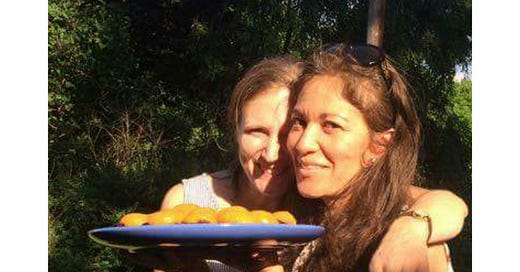



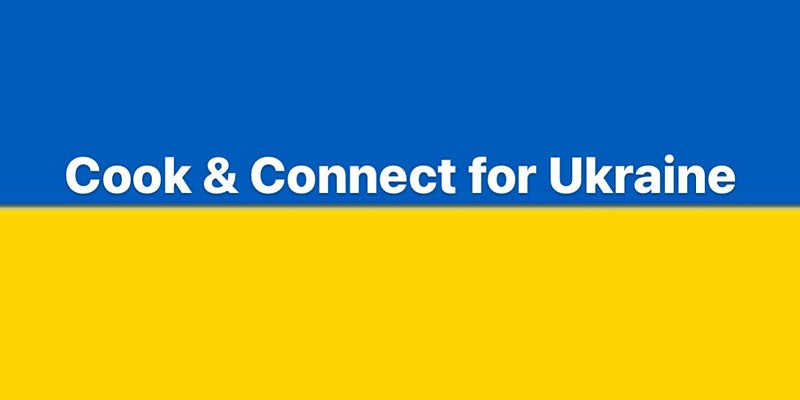
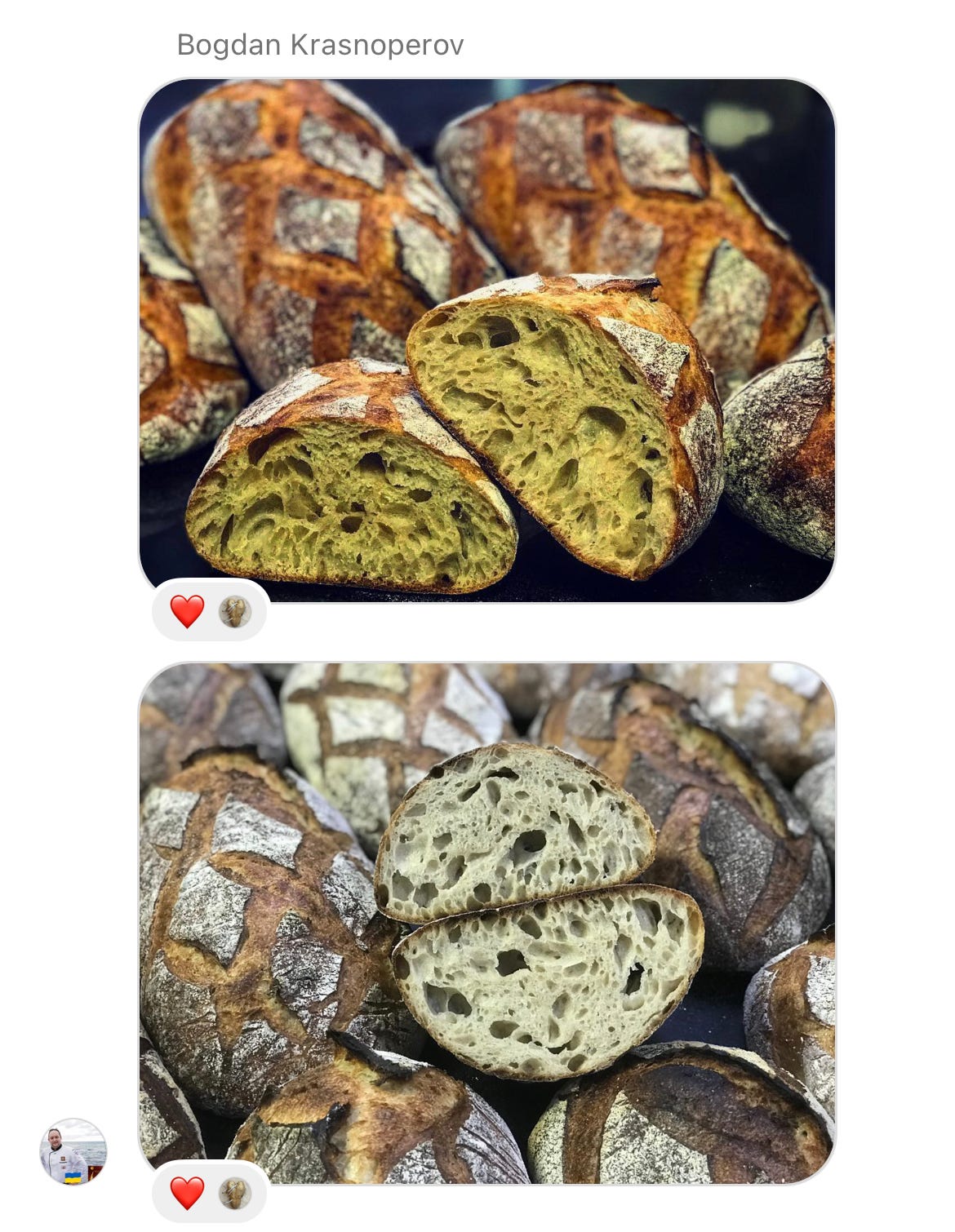
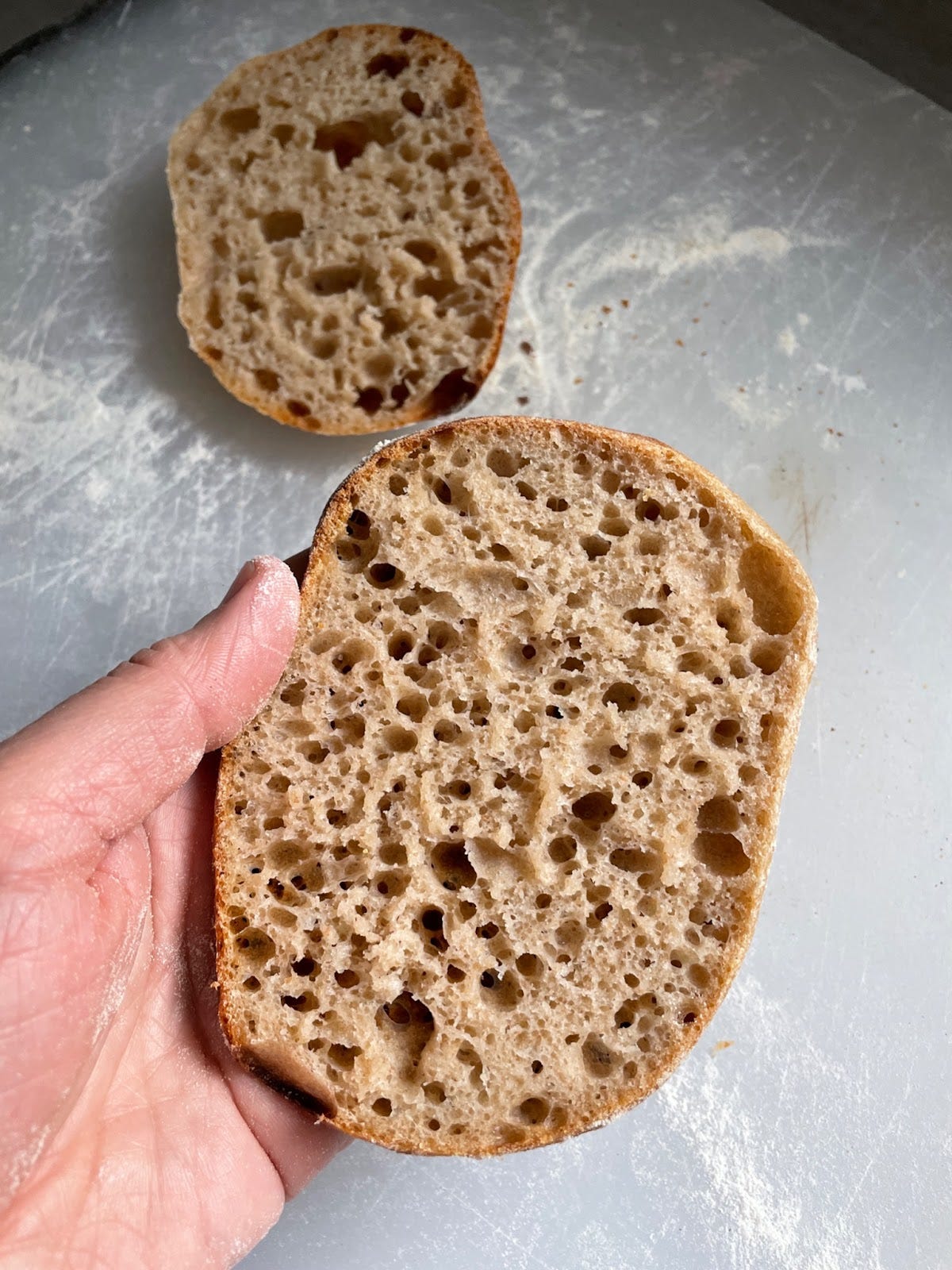
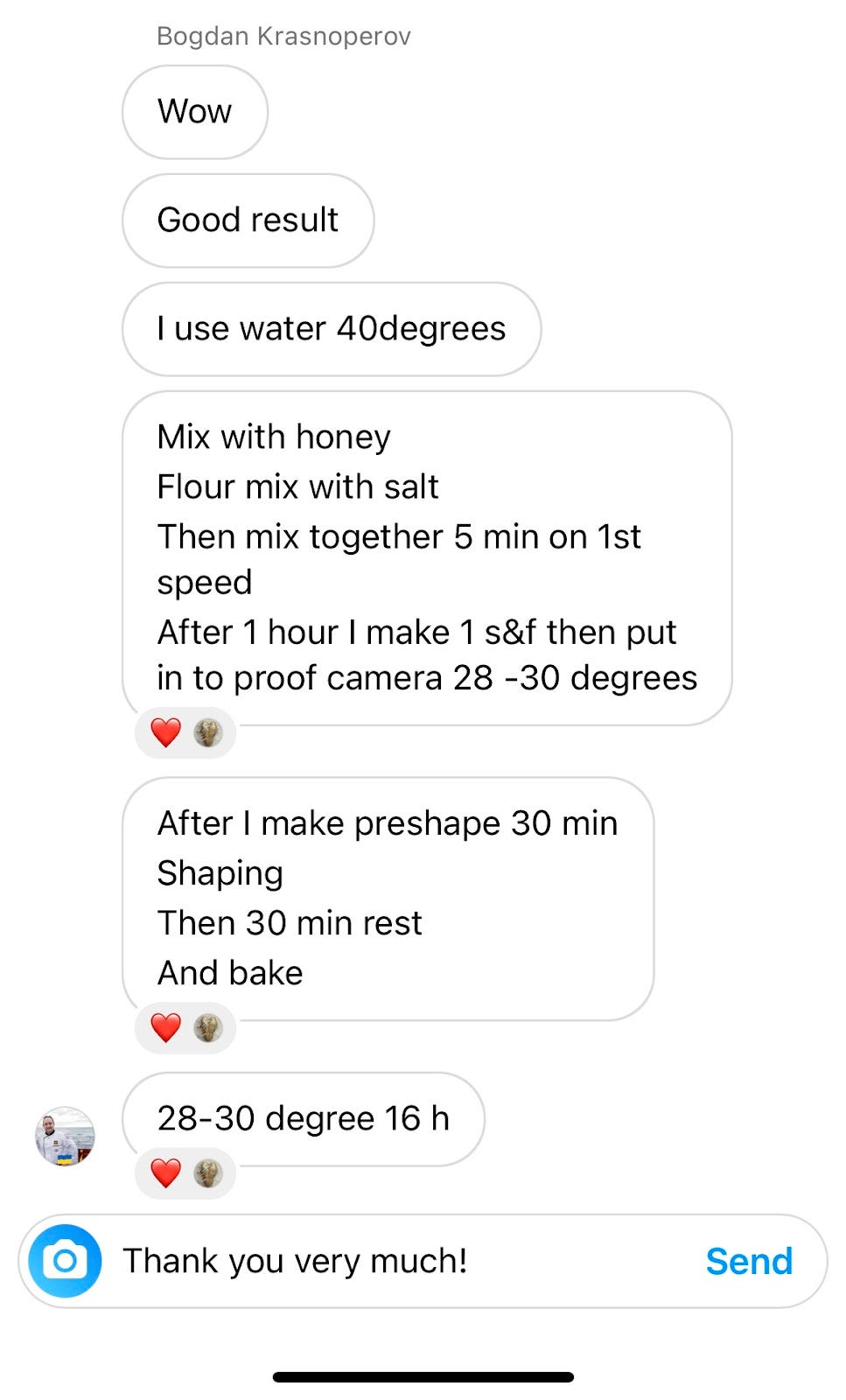
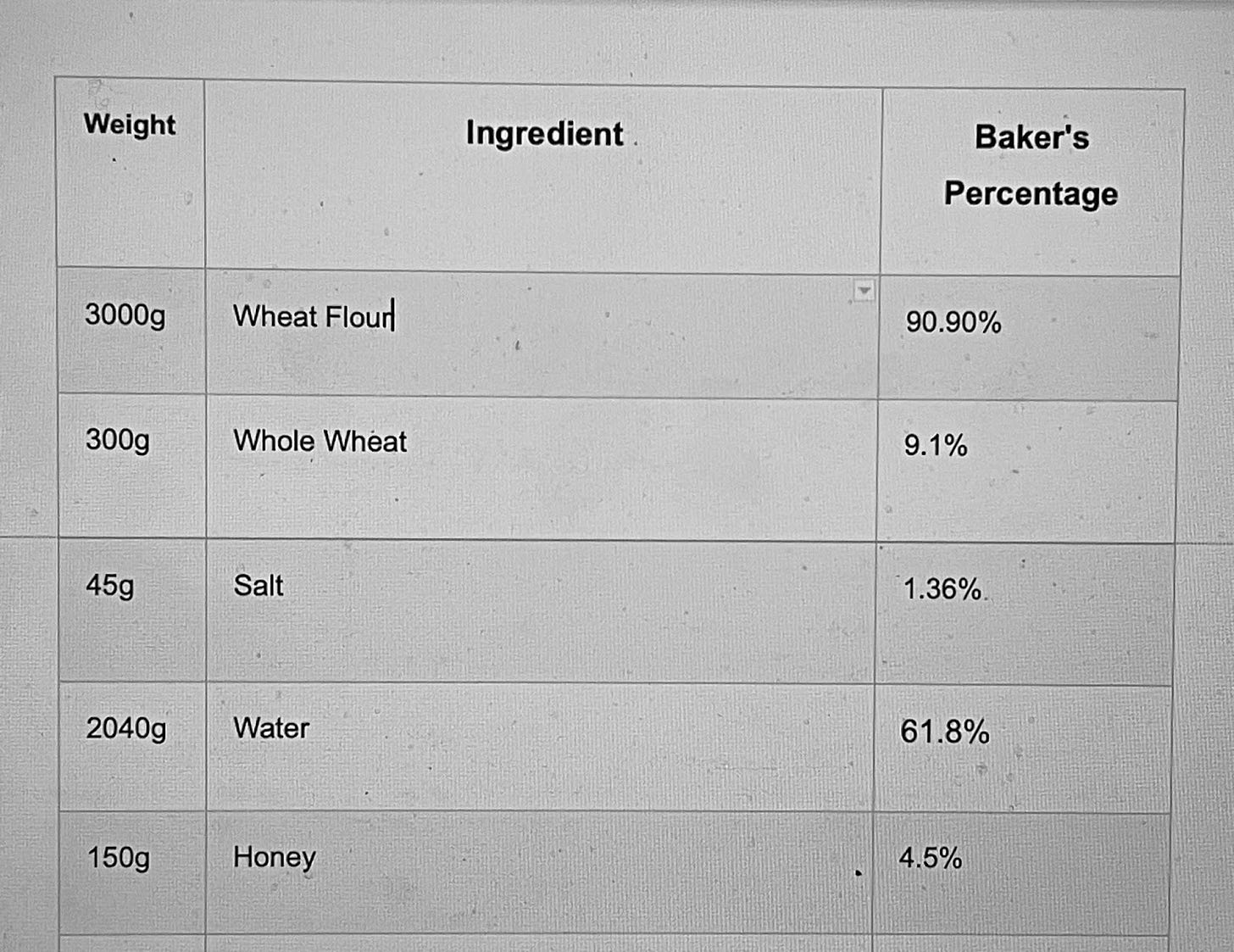
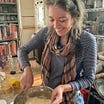
Ellie! Love that you had an exchange with Bogdan around this recipe. I'm going to try it this weekend, as a test for another fundraiser. Any thoughts on how to get results that look more like Bogdan's? Do you plan to try higher temp water for the initial mix? Maybe that helps jump start fermentation?
thank you so much for this wonderful post! i'm new here but thrilled to meet lovely people who also speak Bread! ❤️❤️❤️